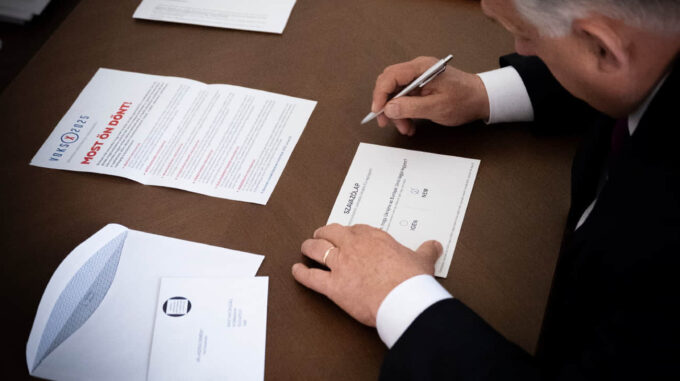In Hungary, Viktor Orbán openly expressed his position regarding Ukraine’s future in the European Union by voting against its accession during a national referendum he organized

This move sparked significant reaction in the diplomatic and political circles of the European Union, as it effectively made the Prime Minister of Hungary publicly oppose Brussels' course on EU expansion and did not conceal his intentions. Orbán shared this public initiative on his official Facebook page, showing how he personally voted. The posted photos reveal that he marked the "against" box on the ballot concerning the question of supporting Ukraine’s membership in the European Union. At the same time, the politician issued a sharp critique of Brussels and the opposition Hungarian party "Tisa," noting that "Brussels and the 'Tisa' party support Ukraine’s accession to the EU. This will destroy the Hungarian economy. We will not allow them to decide our future behind our backs." The background of this step can be traced back reliably. On March 5, Hungary’s Prime Minister announced the start of a referendum he initiated among citizens, asking whether they supported or opposed Ukraine’s accession to the European Union. The distribution of ballots for the national consultation began on April 19, and nearly all Hungarians had the opportunity to vote. It is worth emphasizing that the relevant instructions clearly advised voters to choose "against" Ukraine’s membership in the EU, which further heightened tensions within European political circles. The response to this move was quick. Poland’s Foreign Minister Radosław Sikorski cynically commented on Orbán’s initiative, emphasizing its political nature and potential consequences for the entire region. His words made it clear that Hungary’s actions and leadership provoke an overall mixed reaction and risk increasing tensions within the European community, especially concerning the country’s further path in European integration. Thus, Viktor Orbán’s vote against Ukraine in this internal consultation became not only an internal political act but also an important signal within the broader context of European development and the future unity of the EU regarding support for Ukraine in its fight for independence and European integration.

